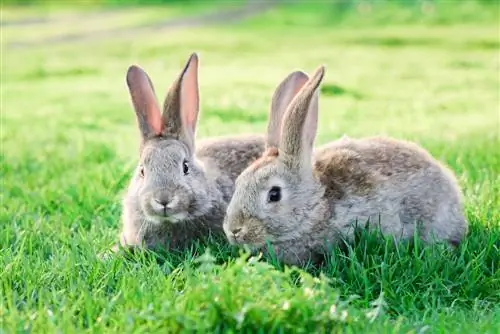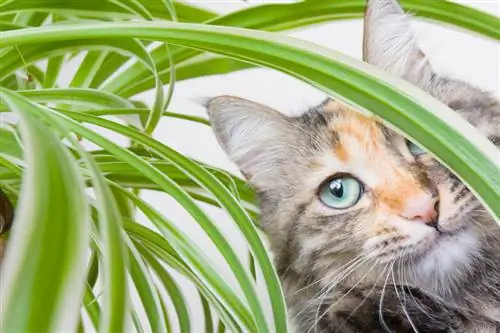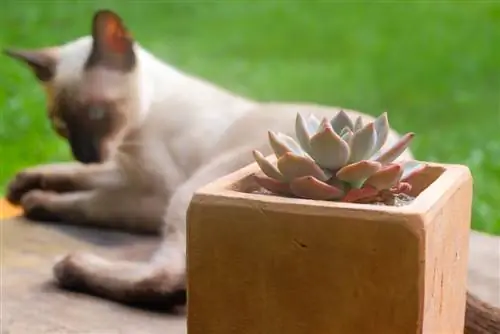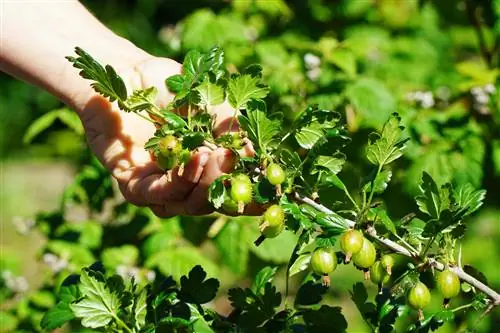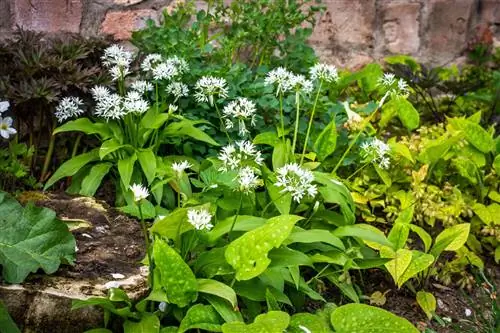- Author admin [email protected].
- Public 2023-12-16 16:46.
- Last modified 2025-01-23 11:22.
The yew (Taxus baccata) can be found as a solitary tree or hedge plant in many gardens. Rabbit owners are wondering whether the coniferous tree is poisonous to the small mammals? Or can one or two yew branches be used like spruce or fir branches for the enclosure?
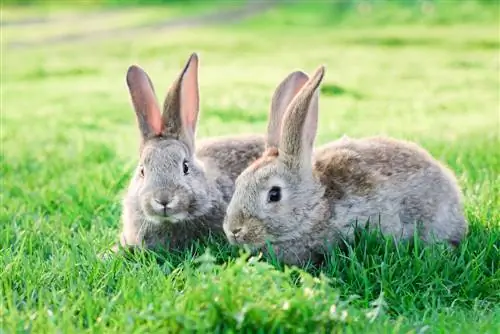
Is yew dangerous for rabbits?
Yes, yew (Taxus baccata) is highly toxic to rabbits because all parts of the plant contain the toxic alkaloid taxine. Yew branches should therefore not be used in rabbit enclosures. Instead, offer fruit tree branches, willow, fir or spruce.
Is yew poisonous to rabbits?
This question must be answered with a clear yes! The native yew is one of the most poisonous plants in Germany. All parts of the plant are toxic because they contain the cardiac alkaloid taxine. The needles and seeds in particular contain a particularly large amount of poison, although the red pulp surrounding the seeds is the only part of the plant that does not contain any toxins.
Birds in particular like to eat the fruits, which are reminiscent of berries, but excrete the seeds undigested. Yew branches therefore have no place in a rabbit enclosure, especially since the owner cannot rely on the animals' "sniffing nose". Many a rabbit has already died from yew poisoning.
Which garden plants are still poisonous to rabbits?
In general, numerous garden plants are poisonous not only to rabbits, but also to other small animals such as chinchillas, hamsters, guinea pigs and tortoises - although not as strongly as the yew tree.
Caution is therefore advised with these popular ornamental plants:
- Ivy
- Boxwood, cherry laurel, privet
- Rhododendron, Azaleas
- Oleander
- Lily of the valley
- Autumn Crocus
- Crocuses
- lantana
- Spurweed
However, you can safely give your rabbits fruit tree branches - especially apple, pear, plum or cherry - as well as willow, fir and spruce trees to nibble on. Under no circumstances should you confuse fir and yew branches and, if in doubt, avoid feeding them.
How to recognize poisoning in a rabbit?
Poisoning in rabbits is usually noticeable through these symptoms:
- Sleepiness
- Apathy
- no longer moves
- Stops eating
- accelerated breathing
- Trembling and cramps
- Pupil dilation
- bloated stomach, diarrhea
All symptoms can, but do not have to, appear at once. Which symptoms appear and to what extent depends on various factors:
- Rabbit size and body weight
- amount of food consumed
- Poison content in feed
Depending on which parts of the plant the rabbit nibbles and how much of it, the amounts of poison and therefore the symptoms of poisoning differ. In any case, you should take your animal to a veterinarian immediately. Also, do not make the animal vomit, but rather give it water carefully.
Tip
Yew also highly poisonous to other animals
Not only rabbits and other small animals, all parts of the egg are also highly toxic for horses, cattle, pigs, goats and sheep, cats and dogs. Only deer don't seem to harm at least young yew shoots, as they like to nibble on them. That's why only a few yew trees grow in the wild in regions with high deer populations.

